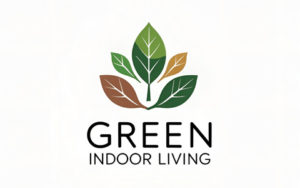I love gardening. Watching plants grow makes me happy. But to get strong, healthy plants they need the right food. That’s where compost and fertilizer come in. Compost is made from natural waste like food scraps and leaves. Fertilizer on the other hand is packed with nutrients plants need. Both help plants grow but they work differently. Let’s break it downcomposting or chemical fertilizers which one is better? Each has its benefits and drawbacks but the right choice depends on long term sustainability, cost and environmental impact. Let’s explore the differences and determine the best option for soil health.
Composting and Chemical Fertilizers
What is Composting?
Composting is a natural process that breaks down organic matter like food scraps and yard waste into nutrient rich soil amendments. It improves soil fertility, enhances water retention and supports beneficial microorganisms that promote plant growth.
Benefits of Composting:
- Improves soil structure by increasing organic matter.
- Boosts the soil microbiome, enhancing plant nutrient absorption.
- Reduces landfill waste, lowers carbon footprint.
- Provides slow release nutrients, long term soil fertility.
What are Chemical Fertilizers?
Chemical fertilizers are synthetic or natural substances formulated to deliver specific nutrients to plants. They often contain nitrogen (N), phosphorus (P) and potassium (K) which boost plant growth quickly. But they lack organic matter which is essential for long term soil health.
Benefits of Chemical Fertilizers:
- Quick nutrient availability for immediate plant absorption.
- Precise nutrient composition, catering to specific plant needs.
- Higher crop yields in shorter time frame.
Composting vs Chemical Fertilizers
Nutrient Availability
Compost releases nutrients slowly, long term benefits. It improves nutrient cycling and sustains soil fertility over time. Chemical fertilizers on the other hand deliver instant nutrient boost but excessive use can lead to nutrient runoff and soil degradation.
Environmental Impact
Composting is eco friendly, recycling organic waste while enriching soil. It reduces water pollution, lowers greenhouse gas emissions and supports sustainable agriculture. Chemical fertilizers can contribute to eutrophication—a process where excessive nutrients pollute water bodies harming aquatic life.
Cost and Long Term Benefits
Composting is cost effective since it uses natural waste materials. Though it takes time the long term benefits outweigh the effort. Chemical fertilizers may be convenient but their repeated use can degrade soil quality and lead to increased cost for soil restoration.
What is the Purpose of Using Compost and Fertilizer?
I use compost to keep my soil healthy. It makes the soil soft, holds water better and is packed with good stuff like nitrogen and potassium. Fertilizer on the other hand is like a power boost. It gives plants instant nutrients when they need it most. If my plants look weak or pale, fertilizer helps fast. But if I want long term soil health compost is the way to go.
Compost – Does it Work as an Organic Fertilizer?
Yes and no. Compost adds nutrients but not in the same way fertilizer does. It slowly releases food for plants while improving the soil. It’s a natural fertilizer but it’s not as strong as synthetic fertilizers. That’s why some gardeners use both. I mix compost into my soil for steady nutrition and sometimes I add fertilizer if my plants need a quick fix.
Pros and Cons of Using Compost
Compost is amazing! It recycles waste, helps the environment and makes soil better. Plus it’s free if you make your own. But it takes time to break down and if not made properly it can smell bad. Also compost alone might not have all the nutrients plants need. That’s why some people still use fertilizer along with compost.
How Does Fertilizer Help to Improve Compost?
Fertilizer and compost can be a dream team. Compost improves soil structure while fertilizer gives plants a quick nutrient boost. I sometimes add a little fertilizer to my compost pile. It helps break down materials faster and adds extra nutrients. But I always use it carefully because too much fertilizer can harm the soil.
What Fertilizers Can You Consider Using?
There are so many fertilizers out there! Organic fertilizers like manure and bone meal are great for long term soil health. Synthetic fertilizers like nitrogen based ones work fast but can harm the environment if overused. I prefer organic options but sometimes my plants need a quick synthetic boost. The key is balance!
Composting vs Chemical fertlizer Which is Better?
If you need a quick fix for plant growth chemical fertilizers might be the better option. But if you’re going for long term soil health and sustainability composting is the clear winner.
For home gardeners composting is the best option—it enriches the soil microbiome, reduces waste and ensures plants get balanced nutrients naturally. For farmers and commercial growers a combination of both might be beneficial to maintain high yields while preserving soil health.
Final Thoughts
It all boils down to your goals. If you want sustainable agriculture, better soil fertility and reduced environmental impact composting is the way to go. Chemical fertilizers may give immediate results but can lead to long term soil depletion. The best approach? Use composting as your main method and supplement with fertilizers only when necessary for a balanced eco friendly gardening!

